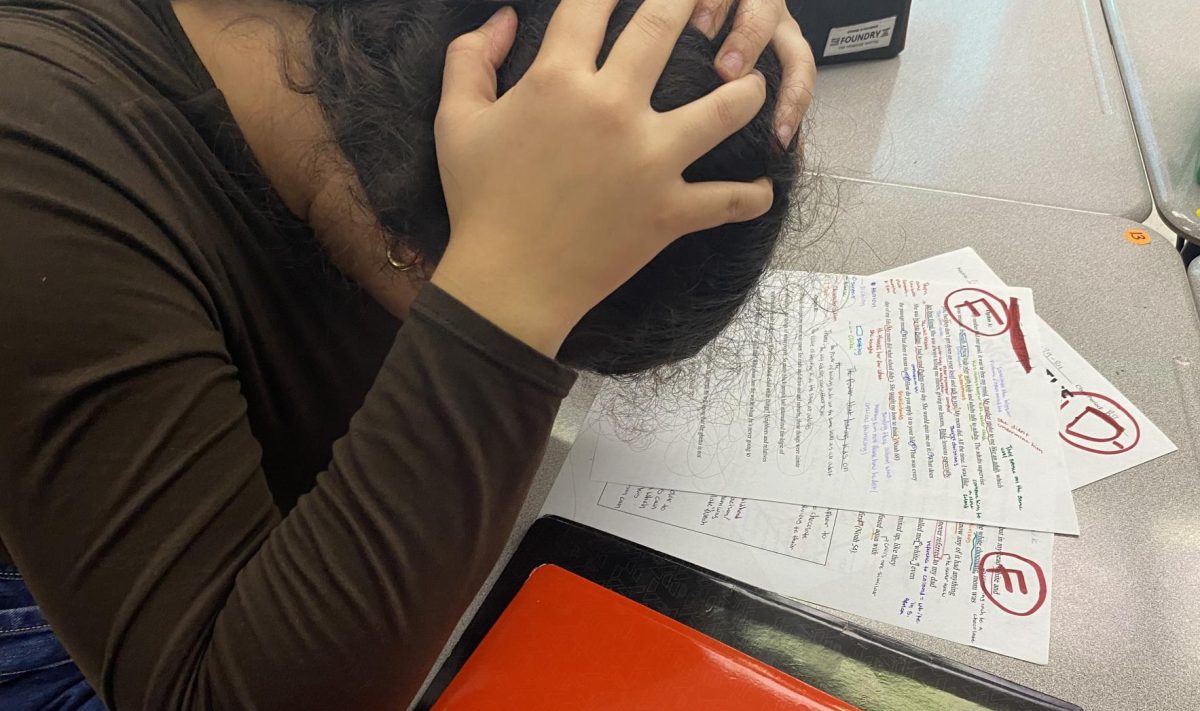Your eyes glaze over, your lids grow heavy, and try as you might to stay awake, you soon find your head splayed across the table, a strand of drool trailing from your mouth, and your teacher standing above you, yelling about your lack of attention. However, according to recent research, you may not be entirely at fault.
The schedule followed by most FCPS high schools may not be the best for students’ internal clocks, and may an impact on both the student’s emotional state and their academic achievement.
“No matter what time I go to sleep, I still wake up tired,” said junior Josh Jean-Jacques.
According to the National Sleep Foundation’s article titled “Teens and Sleep,” biological factors make it difficult for many teens find to fall asleep before 11 p.m. This, coupled with the six a.m. wake-up time that thousands of students adhere to results in thousands of over-tired children trucking off to school every morning.
Following this schedule, students only receive about seven hours of sleep per night, a number that falls short of the nine and one-fourth hours of sleep the National Sleep Foundation, or NSF, deems necessary for teenagers each night.
However, students have little hope of adjusting their internal clocks and going to sleep earlier with the multitude of extra-curricular activities they participate in after school.
“I play sports, so my lack of sleep is partially my fault,” said junior Margot Henric. “But my sleep schedule is definitely off track. I can sleep for twelve hours straight on the weekends, which shows how much I need extra sleep.”
Others, however, blame their late nights on their homework load.
“Sometimes our teacher gives us a lot of homework,” said freshman Pheben Muche, who usually gets about six hours of sleep a night. “Because of this, sometimes I cannot pay attention in my morning classes.”
The NSF also believes that there is a strong correlation between not getting enough sleep and depression in teens. In their 2006 survey, Sleep in America, they found that 73 percent of adolescents who reported feeling depressed also reported that they did not receive enough sleep each night.
“I know that I am relatively unhappy when I do not get enough sleep,” said junior Louise Manahl.
One solution that was considered last year by the FCPS School Board was to push the start-times of schools back to what many consider a more reasonable time. This program was spearheaded by a group called SLEEP, an acronym meaning Start Later for Excellence in Education Proposal. Since their start in 2004 they have lobbied the school board for a later start time, believing that when students receive more sleep their concentration and mental processing abilities will increase.
Mary Carskadon, a professor at Brown University who specializes in sleep research, is in agreement with SLEEP’s views.
“In a sample of kids who were going to school… the first bell was 7:20 in the morning. The [students] just were not adapting to it. They were not [adjusting] to it, and it was producing the awful effect,” said Carskadon in an interview with PBS.
Several different groups of experts, including those at the NSF, Carskadon and SLEEP, all believe that delaying school start times would also aid in preventing truancy.
“More and more, we’re seeing kids not [missing] school because they’re sick; it’s just they’re too tired,” said Carskadon.
The NSF cites effects such as “less likelihood of experiencing depressed moods, reduced likelihood for tardiness and absenteeism, better grades, reduced risk of car crashes” and better overall health as common results of later school start-times. For further information on the sleep needs and patterns of teens, click here.









KimW • Apr 12, 2010 at 4:10 pm
Thanks to the ABlast for a balanced look at the issue of sleep for high schoolers. Last year’s debate was derailed before it even began because of the fears that HS life-as-we-know-it would end if start times were adjusted, even though many districts nationwide have figured out how to make it work. Just as FCPS could. Many of the sleep times we were told would be so devastating were adopted in elementary schools this year as a way to save transportation money, and yet somehow all of the terrible things predicted if our youngers students started earlier just haven’t happened. Too bad we couldn’t do a full investigation of the issue for our teenage students, who need it the most.
Paula R. • Apr 9, 2010 at 11:22 am
What does the picture mean? What are the “Stages” supposed to mean? Maybe add in your article something about that, or change the picture